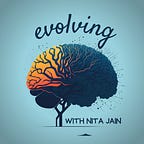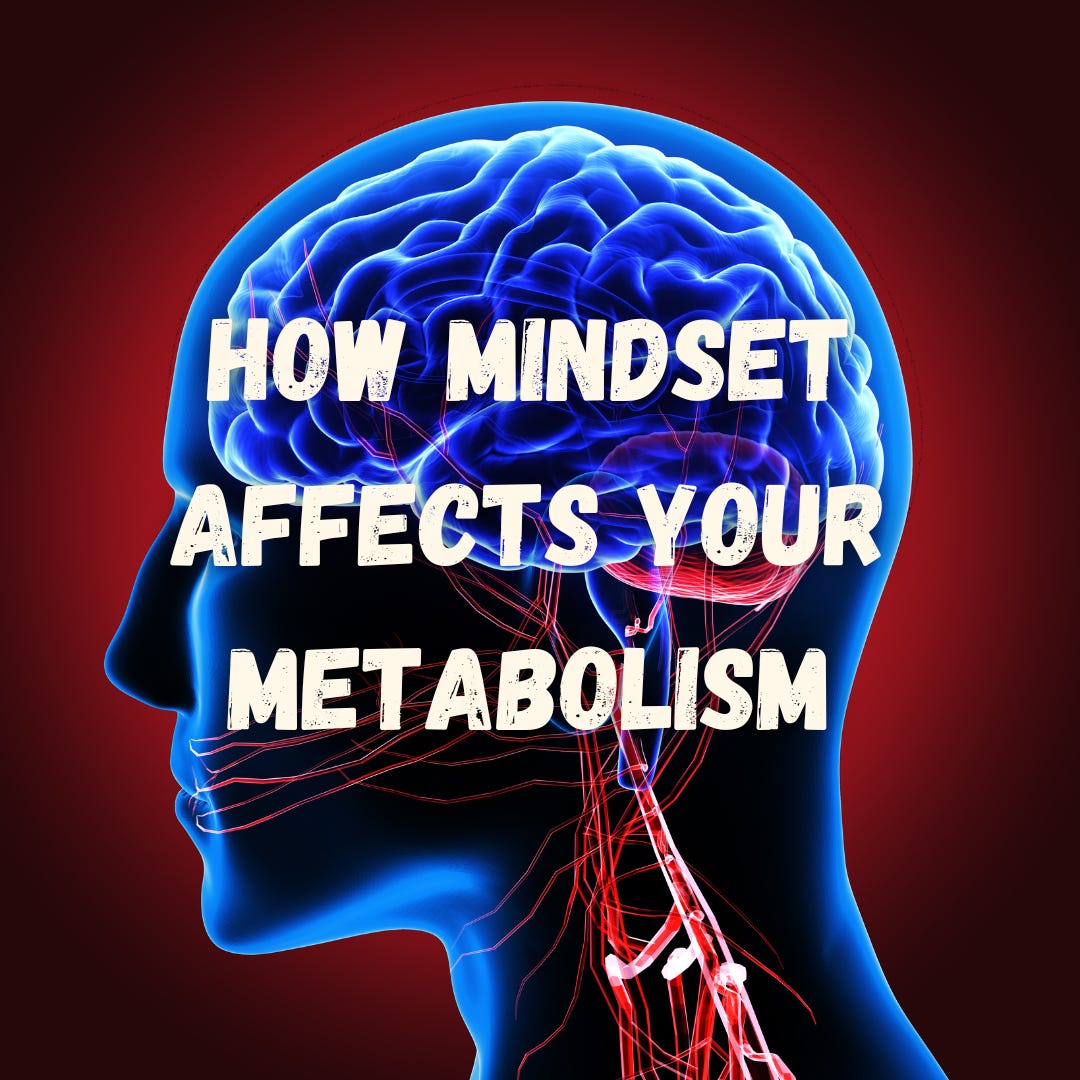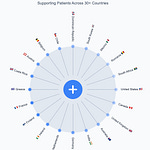Last time, we discussed how letting go of our sense of self can significantly impact our lives by reducing mental suffering, improving productivity, and helping us experience the benefits of awe. This week, we’ll explore another question together:
Can our mindsets make us healthier?
Our beliefs can indeed exert surprising physiological effects. A recent randomized clinical trial discovered that educating children about the side effects of allergy immunotherapy greatly improved patient compliance and parental anxiety during treatment for peanut allergies.
Oral immunotherapy is an emerging treatment for allergies in which patients are given gradually larger doses of an allergen in order to promote immune tolerance. The appearance of mild reactions to treatment like a scratchy throat or congestion can sometimes concern children and parents alike since these symptoms closely resemble those of a more severe allergic reaction like anaphylaxis.
The anxiety can be so great that families may skip doses or stop treatment completely. In the study, telling children that side effects may be beneficial and even help overcome allergy in the long term allowed kids to successfully complete treatment and experience fewer side effects when exposed to actual peanuts.
Why might a positive mindset change our response to something like allergens? Let’s dive a little deeper to find out.
Mindsets 101
Our mindsets affect our perceptions of reality and are influenced by our upbringing, cultural values, and environments. Marketing, advertising, and health influencers shape our attitudes towards foods, exercise plans, and lifestyle practices.
Many of our mindsets are simply the result of mimetic desire, meaning we imitate what others want. We desire what is socially desirable. Mimetic desire describes how social influences like parents, peers, teachers, media, and society impact nearly all our decisions from our career aspirations to the partners we choose.
Dr. Alia Crum, Professor of Psychology at Stanford, studies how mindsets affect health and physical performance. She defines mindsets as core beliefs or assumptions about a domain. Whether we think stress is enhancing or debilitating influences the outcomes that follow. Whether we believe the nature of intelligence is fixed or malleable affects motivation and the ability to persist during academic challenges.
Mindset vs. Placebo
While the origins of the placebo effect may have been based on insufficient evidence, science suggests that the way we feel about something does in fact impact the way it affects us. We often forget that the total effect of a medical treatment is a combination of the chemical properties of that drug plus the placebo effect, which consists of social context, beliefs or mindsets, and our body’s natural physiological ability to heal.

Mindset and Food Metabolism
Do our beliefs change our bodies’ physiological response to food?
Dr. Crum conducted a well-known study, sometimes called the “milkshake study,” in which she administered identical vanilla milkshakes to the same group of people separated by a week. Participants were initially told they were drinking a calorie-rich, indulgent milkshake full of fat and sugar. The second time, volunteers were told they were drinking a healthy, sensible, nutritious meal shake.
Levels of a gut hormone called ghrelin were measured before and after drinking each set of milkshakes. Sometimes called the “hunger hormone,” ghrelin signals to the hypothalamus in the brain that it’s time to seek out food. After a large meal, ghrelin levels drop, telling your body that you’ve eaten enough.
Scientists originally thought that ghrelin levels fluctuated in response to nutrient intake alone. Eat a cheeseburger, and ghrelin levels drop substantially. Eat a salad? Not so much. But Crum discovered something else entirely in her milkshake study.
She found that telling people that they were drinking something indulgent caused their ghrelin levels to drop threefold more than when they thought they were drinking a low-calorie shake. In other words, simply believing that they were consuming something filling caused their bodies to respond as if they actually were.
This evidence suggests that we may be able to manipulate metabolism with our mindsets. Crum argues that these findings require us to rethink our traditional metabolic model of “calories in, calories out,” which doesn’t account for the influence of mindset on physiology. According to Crum,
“Our beliefs matter in virtually every domain, in everything we do. How much is a mystery, but I don't think we've given enough credit to the role of our beliefs in determining our physiology, our reality.”
Should we cultivate mindsets of abundance?
Counterintuitively, the belief that we’re eating indulgent foods rather than healthy ones seems to result in improved satiety and better health outcomes. The reason we observe this correlation may be due to the power of abundance and scarcity mindsets. Stephen Covey was the first to coin these terms in his seminal book, The 7 Habits of Highly Effective People.
The scarcity mindset is grounded in destructive competition and subscribes to the idea that opportunity is a finite pie such that if one person takes a large piece, there is less available for everyone else. Individuals with an abundance mindset, on the other hand, reject the notion of zero-sum games and believe there is more than enough to go around.
An abundance mindset allows us to celebrate the successes of others and share profits, power, and recognition. According to Covey, embracing an abundance mindset allows for freedom and mental clarity, which enables us to more effectively pursue our goals. Similar mechanisms may be at play when we consume food from a mindset of indulgence.
The calmness that accompanies the belief that we have more than enough to eat may lead to lower levels of the stress hormone cortisol, thereby preventing excessive ghrelin stimulation and the urge to overeat. In other words, operating from a mental place of abundance or indulgence may reduce chronic stress and therefore improve our metabolic health.

If an indulgence mindset can promote health, can actually consuming indulgent foods also lead to health benefits? Unfortunately, the science suggests otherwise. A 2020 review article published in the journal Nutrition Research described how satiety cues that promote a sense of fulness and satisfaction typically inhibit cravings for more food.
But Western diets rich in energy, sugar, and saturated fats seem to impair these inbuilt mechanisms of appetite reduction by hijacking our brain’s reward pathways and inappropriately releasing dopamine to reinforce behaviors. So how can we restore normal appetite regulation and cultivate a healthier relationship with food? Intuitive eating may provide a possible answer.
Can we make eating more intuitive?
Stress reduction may be one of the mechanisms by which intuitive eating improves well-being. Intuitive eating relies on a skill called interoception, which describes our ability to sense internal signals from our bodies. Interoception originates in the insular cortex of the brain and can help us register the sensation of hunger or predict our approximate heart rate.
Intuitive eating relies on satiety and appetite signals to guide eating habits instead of using emotional, social, or chronological cues. Interoceptive sensitivity has been associated with healthier BMIs, higher levels of self-esteem, and reduced incidence of disordered eating patterns compared to other dieting methods.
Many of us may have a reduced capacity for interoception due to chronic pain or trauma, a tendency to suppress emotions, or eating to always clean our plates instead of eating until we’re full. Retraining our bodies to perceive and respond to physiological signals can help reduce cravings and improve self-regulation.
Dr. Kent Berridge, a professor of psychology and neuroscience at the University of Michigan, recommends that we “allow the craving to happen; just notice it, feel it, and let it fade.” This approach is part of mindfulness-based eating awareness training (MB-EAT), which has been shown to help alleviate stress-induced cravings, improve self-control, and reduce symptoms of depression.
Mindfulness-based eating awareness involves regulating emotions, consciously making food choices, developing an awareness of hunger and satiety cues, and cultivating a sense of self-acceptance. The goal is to redirect our attention to the here and now and prevent cycles of rumination. Regularly practicing mindfulness has been shown to stimulate changes in brain activity, including reduced activation of the amygdala, a brain region involved in fear and anxiety.
Mindfulness can even stimulate the “relaxation response,” a term coined by Dr. Herbert Benson, founder of Harvard’s Mind/Body Medical Institute. The relaxation response is the opposite of the body’s adrenaline-charged “fight or flight” response and encourages our bodies to release chemicals that increase blood flow to the brain. Many different practices can elicit the relaxation response, including guided imagery, muscle relaxation, massage, prayer, meditation, tai chi, qi gong, and yoga.
Mindset and Exercise Metabolism
We’ve already seen how mindset can impact physiological responses to food. But can mindset also affect how our bodies respond to exercise? Harvard Psychologist Ellen Langer conducted an experiment to find out. She decided to study female hotel workers who engaged in a lot of physical activity as part of their daily jobs: pushing carts, changing linens, scrubbing bathrooms, vacuuming, and climbing stairs.
When surveyed about their exercise habits, one third of the women reported not getting any exercise at all. The majority of housekeepers estimated low levels of personal exercise—an average of a three on a scale of zero to ten. Even though these women were very active, they didn’t perceive themselves as engaging in lots of exercise. They thought their work was just work.
Researchers divided these women into two groups and told the experimental group that their work was good exercise and met the guidelines for an active lifestyle. Subjects in the control group weren’t given any information. Throughout the study, Langer tracked metrics like weight, body fat, and blood pressure.
Four weeks later, the group that had received positive counseling about the benefits of work-associated exercise lost two pounds on average and decreased their systolic blood pressure by about ten points. The control group didn’t experience weight loss benefits and only droppped systolic blood pressure by an average of two points.
Women who were informed about the benefits of exercise also exhibited improvements in body fat, waist-to-hip ratio, and BMI, none of which were observed in the control group. No other detectable behavioral changes such as increased physical activity or dietary changes seemed to be at play.
These findings mean that objective health benefits like cardiovascular disease risk and weight maintenance depend not only on what we’re doing but also on what we think about what we’re doing.
To recap, mindsets have a profound impact on our metabolism by affecting our physiological responses to diet, exercise, and medication. What you believe about the nutritional content of your food considerably affects the way it impacts your brain and body. Adopting a mindset of indulgence, satisfaction, and enjoyment can help us feel more satiated after meals by manipulating levels of hormones like cortisol and ghrelin.
Eating nutritious foods with an indulgent mindset may provide the best of both worlds. Retraining ourselves to eat when hungry instead of eating due to stress or boredom can help reduce cravings and prevent overeating. Intuitive eating and mindfulness practice can help you inhibit your body’s stress response, identify your underlying feelings, and choose alternatives to comfort food, like a soothing cup of tea.
Thinking more positively about our daily activity levels can help us more effectively leverage the benefits of work-related exercise. Mindsets may even affect the severity of immune reactions by modulating our stress response, inhibiting cortisol release, stabilizing mast cells, and preventing the formation of downstream inflammatory compounds like histamine.
Listen to “Evolving with Nita Jain” on Spotify, Apple Podcasts, Amazon Music, Audible, Google Podcasts, Soundcloud, Deezer, TuneIn, RadioPublic, Stitcher, Castbox, Pocket Casts, Player FM, Podcast Index, Castro, Overcast, Listen Notes, Podchaser, Goodpods, or iHeart Radio!
Music for this episode, “New Beginnings” by Joshua Kaye, was provided courtesy of Syfonix. Some links are affiliate and help support my mission to share actionable health insights with the general public. Thank you!












